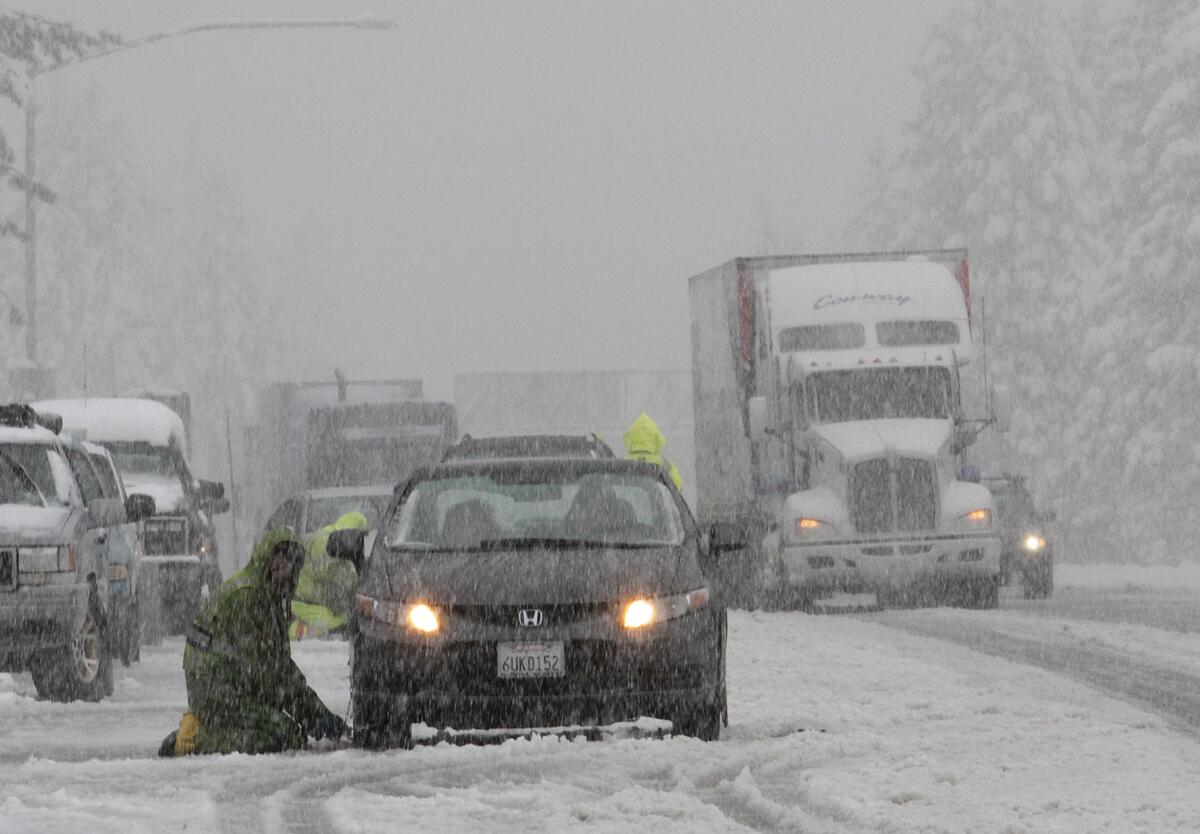With snow looming, time to dig out those tire chains. Here are some tips

Tire chain installers at work on eastbound Interstate 80 in Northern California.
(Rich Pedroncelli / AP)
- Share via
A snowy holiday week beckons, meaning tire-chain laws will be in effect in many SoCal mountains. Roadside installers will be standing by, the best $25 to $75 you’ll ever spend. But be prepared to do it yourself in a pinch. And “pinch” might be the appropriate word if you’re unfamiliar with the process. A video primer helps.
Here’s a refresher
- Be sure the chains fit. Grabbing the wrong set of chains can damage tires and suspension.
- If buying chains, consider cable versions, which often are simpler to work with.
- Figure out whether the chains go on the front or back tires — the owner’s manual can assist. So can your mechanic (the orientation of the engine gives it away).
- Practice at home. Lay out the chains or cables in the driveway, and practice when it’s dry and comfortable.
- Take gloves. A light set of water-resistant gardening gloves works well.
- Make sure all loops and cables are facing the same direction. A twisted link can lead to breakage.
- Once chains are installed and tightened, drive a short distance — say, 20 feet — and retighten them.
How to drive with chains
- Tire company Les Schwab recommends listening for “a loud sound of slapping, or metal on metal.” Stop as soon as possible to prevent damage.
- 25 mph is the maximum speed with chains, most manufacturers and road safety experts say.
- Brake and accelerate gradually to avoid skids or spinouts.
- Once on dry pavement, remove the chains.
If you get stuck in snow
- If you become stranded, the auto club urges you to stay with your vehicle. That makes it easier for rescuers to locate you.
- Tie a brightly colored cloth to the antenna or place a cloth at the top of a rolled up window to signal distress.
- Leave the dome light on at night. It only uses a small amount of electricity and will make it easier for rescuers to
find you.
- Clear the exhaust pipe of snow, ice or mud to prevent deadly carbon monoxide from seeping into the car.
Sources: Auto Club of Southern California, Les Schwab, Esurance
Sign up for The Wild
We’ll help you find the best places to hike, bike and run, as well as the perfect silent spots for meditation and yoga.
You may occasionally receive promotional content from the Los Angeles Times.




